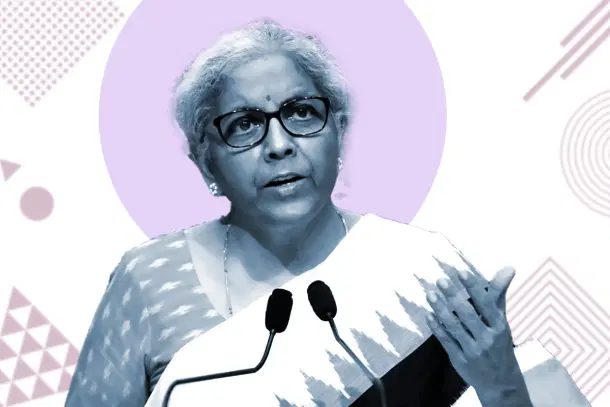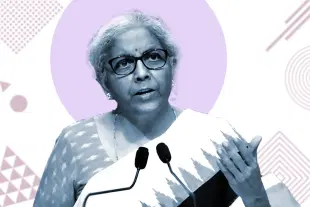News Brief
Finance Minister Nirmala Sitharaman Promises Policy Support For Global Capability Centres; Says One GCC Was Established Every Week In 2024
Arun Dhital
Jul 15, 2025, 03:05 PM | Updated 03:05 PM IST
Save & read from anywhere!
Bookmark stories for easy access on any device or the Swarajya app.


Finance Minister Nirmala Sitharaman on Monday reaffirmed the government’s commitment to enabling the rapid growth of Global Capability Centres (GCCs) in India, projecting the sector to contribute as much as $200 billion to the economy by 2030 and create millions of jobs, Times of India reported.
Speaking at the CII-GCC Business Summit, Sitharaman outlined a host of policy measures aimed at facilitating the expansion of GCCs, including reduced approval timelines, improved tax certainty (including smoother Advance Pricing Agreements), and more integrated administrative support across ministries.
"India must not lose this opportunity," she said, calling for increased investment in Tier 2 and Tier 3 cities and citing GIFT City as a regulatory model.
The Finance Minister highlighted that one new GCC was being established every week in 2024, and that India is already home to around 1,800 GCCs employing over 2.16 million professionals.
This number is expected to rise to 2.8 million by 2030.
"That’s a conservative estimate," she added, stressing that operating costs in India are 30-50 per cent lower than in markets such as the US, UK, or Australia.
Notably, about 50 per cent of Fortune 500 companies have already set up GCCs in India.
Sitharaman’s remarks come at a time when India is being increasingly recognised as a key player in the global workforce supply chain.
According to a recent report by Crisil Intelligence, India is poised to become a global employment epicentre, as many high-income countries grapple with an ageing population and a shortage of skilled labour.
The report noted that India, where 65 per cent of the population is under 35, has a demographic edge, offering the potential to supply surplus talent to meet international demand.
However, Crisil also flagged serious skill development challenges. Less than half of Indian graduates are considered fully employable, and only 4.4 per cent of the workforce has received formal vocational training, the report said.
Also Read: Jaishankar Meets Xi Jinping In First Visit To China Since Galwan Clash




